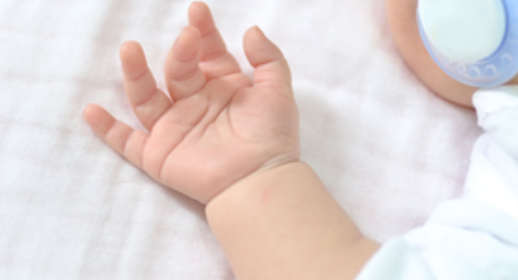Health
Prenatal exposure to PM 2.5 may up severe respiratory distress in newborns

New York, Jan 30
Prenatal exposure to air pollution increases the risk of severe respiratory distress in newborn babies, according to new research led by one of Indian-origin.
The risk increases with exposure specifically to fine particulate matter (PM2.5) and nitrogen dioxide (NO2), which occur in wildfire and cigarette smoke and vehicle emissions, among other sources.
Babies born to mothers exposed to higher levels of PM2.5 are more likely to experience severe respiratory distress, requiring interventions such as assisted ventilation and systemic antibiotics.
The association between PM2.5 exposure and severe respiratory distress remained consistent whether the exposure occurred during the pre-pregnancy stage or at any stage during pregnancy.
NO2 exposure in mothers was associated with an increased need for systemic antibiotics among babies, revealed the findings, published in the journal Environmental Health Perspectives.
“Mothers’ exposure to air pollution while pregnant is known to be associated with adverse long-term respiratory issues, such as asthma, in their children,” said Chintan K. Gandhi, Assistant Professor of Paediatrics at Pennsylvania University in the US.
“However, what we didn’t know is that maternal exposure to air pollution could cause babies to suffer severe respiratory distress soon after birth.”
To conduct the study, the researchers analysed the exposures of 2,001 pregnant women from 10 Canadian cities to environmental chemicals, including PM2.5 and NO2.
The team estimated the women’s exposures to PM2.5 and NO2 beginning three months prior to pregnancy through the end of the third trimester by using models based on satellite information and ground-level air quality monitoring devices.
However, Gandhi said, “There really is no safe level of air pollution.”
“We found that the more air pollution mothers were exposed to, the greater the chances that their babies would suffer severe respiratory distress,” he said.
While the team did not investigate the specific mechanism through which pollutants are transmitted from mother to child, Gandhi pointed to previous research indicating heightened inflammatory markers in mothers exposed to air pollution.
These markers, detected through blood tests in the same cohort of mothers, underscore a potential pathway for the impact of air pollution on maternal health and its subsequent influence on newborns, he said.
“Our findings hold substantial importance as they suggest that preventing death and illness in babies due to respiratory distress is plausible through the reduction or elimination of air pollution. It is imperative for policymakers to grasp the gravity of this situation,” Gandhi said.

12 hours ago
President Droupadi Murmu begins her State-visit to Angola

12 hours ago
"Take from the BIG, BAD insurance companies, give it to the people," Trump urges Senate Republicans to abolish Obamacare

12 hours ago
The Third Eye: Trump’s strategy of maintaining America as economic superpower

12 hours ago
Impact felt across US as Republican-Democrat standoff on government funding drags on

12 hours ago
Telangana Cyber Security Bureau nabs 81 fraudsters in multi-state operation

12 hours ago
All are welcome in Sangh as sons of Bharat Mata: Mohan Bhagwat on Muslims in RSS

12 hours ago
Tejashwi celebrates 36th birthday during rally in Bihar's Karakat

12 hours ago
Wish for bright future for residents of Uttarakhand: Prez Murmu on state's 25th foundation day

12 hours ago
Goldman Sachs upgrades India to 'Overweight', sees Nifty at 29,000 by 2026

12 hours ago
Two killed as speeding car plunges into MP's Katni lake

12 hours ago
Pakistan forced to step back as conflict with Afghanistan proves too costly

12 hours ago
Tejas, Rafale sparkle at IAF flypast over Brahmaputra

12 hours ago
Devbhoomi Uttarakhand is heartbeat of India's spiritual life: PM Modi






















